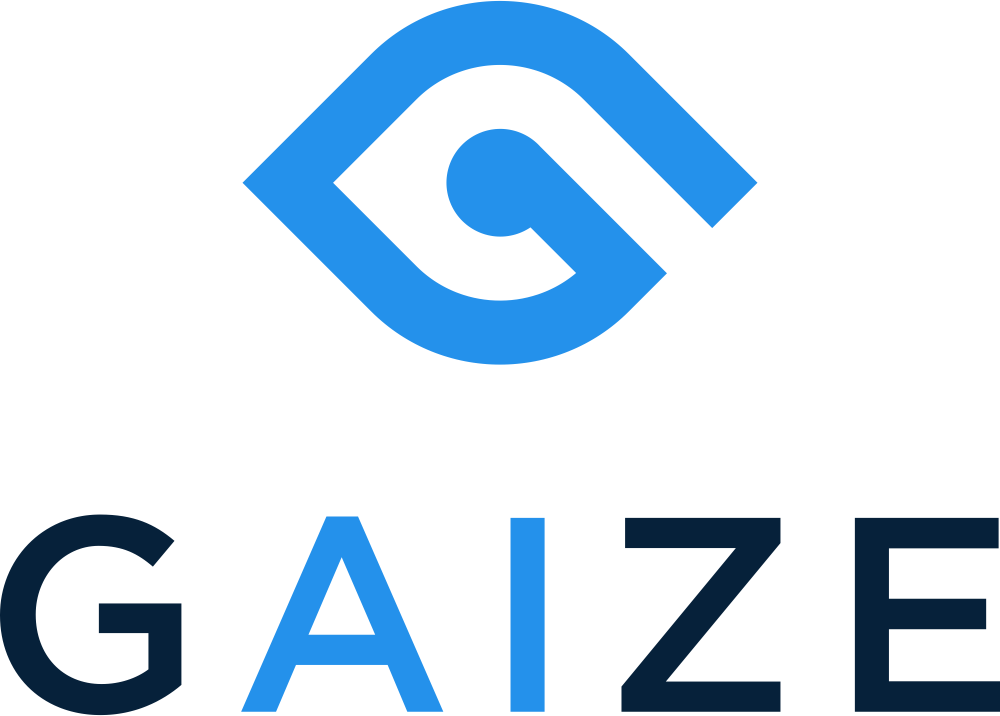
The Ethics of Gaize’s
Impairment Detection Technology
The existing methods of chemical drug testing have long been criticized for their inability to accurately assess physical and psychological impairment resulting from drug use. These tests merely detect the presence of a substance, failing to differentiate between individuals who are currently impaired and those who have previously used a substance but are not currently impaired. This is an extremely important distinction that has become a major ethical dilemma faced by jurisdictions legalizing certain impairing substances, namely cannabis. It has disproportionately affected safe, legal and responsible cannabis users, who face unjust consequences despite being fully sober and capable of performing their duties safely.
Many jurisdictions have created laws or are using technology that attempts to conflate recent use of a substance with impairment. An example of these laws are “per se” limits for cannabis. These laws set a specific blood concentration level of THC (Delta-9-tetrahydrocannabinol, the primary psychoactive compound found in cannabis) above which an individual is considered impaired for the purposes of driving or operating machinery, regardless of actual impairment. Several states in the U.S. (Illinois, Montana, Nevada, Ohio and Washington) as well as Canada have established per se limits for THC.
The implementation of per se limits for THC and other drugs is unethical for several reasons:
There is no scientific evidence linking chemical levels of THC and other drugs and drug metabolites in the body to impairment: Unlike alcohol, there is no clear correlation between specific blood-THC levels and degrees of impairment. Individual responses to THC significantly based on factors such as tolerance, metabolism, potency and method of consumption. Setting arbitrary limits fails to account for this individual variability and can lead to unfair penalization of individuals who may not be functionally impaired. Many prominent researchers and organizations have released guidance against per se limits: Researchers, IACP, NIJ, NHTSA, AAA, Reason.
Penalization of responsible cannabis users: Per se THC limits effectively criminalize the presence of THC in an individual's system, even if they are not actively impaired or pose no risk to public safety. This disproportionately affects responsible cannabis users, including medical patients, who may have detectable THC levels but are not functionally impaired.
Lack of consideration for metabolite presence: THC and its metabolites can remain in an individual's system for an extended period, long after the impairing effects have subsided. Per se limits may fail to differentiate between active THC and non-impairing metabolites, potentially leading to the penalization of individuals who are not currently under the influence.
Discrimination and infringement of personal liberties: Per se THC limits represent an unjustified infringement on personal liberties and a form of discrimination against cannabis users. These laws effectively criminalize the mere presence of a legal substance in an individual's system, even in the absence of impairment or risk to public safety.
Hindrance to harm reduction efforts: By conflating the presence of THC with impairment, per se limits may discourage responsible cannabis users from seeking support or treatment for potential substance abuse issues, as they may fear legal repercussions even when not impaired.
Chemical drug tests that are routinely conflated with impairment tests include breath, saliva (oral fluid) and blood. While these technologies are useful and represent a vital piece of the safety equation, they are not tests for impairment and must not be used in this way. Many states and companies routinely deploy these chemical tests and take adverse action based on their results. Since the outcomes can be so consequential for those falsely accused of impairment, new technology is required that can actually fulfill the need for real-time impairment detection.
As an example, the length of time these tests can be positive for THC is listed below:
Breath: Positive for up to 4 hours, not effective for vaporized or edible cannabis. (source)
Saliva / Oral Fluid: Commonly positive for up to 48 hours, has been shown in clinical trials to be positive for up to 8 days. (source)
Blood: Commonly positive for up to 7 days. (source)
While ensuring public safety is both a vital and legitimate concern, scientists and policy experts virtually universally agree that chemical tests an inadequate, ineffective and unethical approach to maintaining safe roads and workplaces. Instead, they advocate for the adoption of comprehensive impairment testing methods that accurately assess an individual's functional impairment, regardless of the substance involved. Technologies like Gaize, which focus on detecting actual impairment rather than relying on arbitrary substance levels, are a more ethical and scientifically sound alternative.
Gaize, a real-time eye movement analysis technology powered by machine learning and analytical algorithms that aims to address this by providing a more accurate and fair approach to impairment detection. The product leverages the well known and thoroughly researched Drug Recognition Expert eye tests to detect and measure impairment. In human-conducted form, this process has been used for over 45 years in all 50-US States as well as several other countries to investigate impaired driving cases. These tests represent the gold standard for impairment detection from non-alcohol sources today. Gaize democratizes access to these tests, thereby facilitating a significant improvement in impairment detection for both non-Drug Recognition Expert law enforcement personnel, as well as commercial businesses with safety-sensitive workers.
Studies have shown that humans without Drug Recognition Expert training are poor predictors of cannabis impairment. Businesses leverage training called “Reasonable Suspicion” for their supervisory level employees. This training is typically only one day long and is woefully inadequate for detecting the subtle signs of drug impairment. Law enforcement officers without Drug Recognition Expert training use a series of simple tests that were designed to detect alcohol impaired driving. These are similarly inadequate for the complexities of cannabis and other drug impairment. One study last year found that officers misclassified cannabis impairment 49% of the time (source).
Gaize represents a radical improvement in the status quo:
Fairness and Non-Discrimination: One of the most significant ethical advantages of Gaize is its potential to promote fairness and prevent discrimination against responsible cannabis (and other substance) users. Chemical drug tests have historically penalized individuals for the mere presence of THC or THC metabolites, even when no functional impairment exists. Gaize's ability to detect actual impairment, rather than simply the presence of a substance, represents a substantial step forward in ensuring that individuals are not unfairly targeted or denied opportunities based solely on their responsible use of legal substances.
Holistic Assessment and Human Oversight: Gaize's approach to impairment detection is designed to be holistic, incorporating multiple layers of assessment. While the technology serves as an initial screening tool, any signs of impairment detected are followed by traditional chemical testing to verify the presence of an intoxicant. All Gaize customers agree to this as an explicit term of use of the technology. This comprehensive process ensures that decisions are not made solely based on algorithmic outputs, but rather through a combination of tools, providing the highest standard for evidence before adverse action is taken. Furthermore, the human-interpretable video captured by Gaize allows for expert verification, promoting transparency and accountability in the decision-making process.
Improved Safety and Harm Reduction: By accurately detecting impairment from a wide range of substances, beyond those covered by standard drug tests, Gaize has the potential to significantly enhance safety in various environments, such as workplaces and on the roads. As an example, commonly abused substances like Delta-8 THC, Kratom, Fentanyl, Nitazines, and other synthetic analogues of traditional drugs are not included in any standard drug panels. The capability to generally detect impairment from any class of drug not only protects individuals from the consequences of impairment but also mitigates potential harm to businesses from workplace impairment. By identifying impairment irrespective of the substance involved, Gaize promotes a more comprehensive approach to harm reduction, ultimately contributing to a safer society.
Privacy and Data Protection: Gaize has considered privacy and data protection to be critically important from day one. Robust measures have been implemented to ensure the secure handling and storage of eye movement data and video recordings. The entire platform was built to not include any personally identifiable information, to be compliant with HIPAA, BIPA and other laws. Using modern security practices, all data is encrypted at rest and in transit. Clear policies and procedures are in place to govern data access, retention, and disposal, safeguarding individuals' privacy rights while maintaining the integrity of the impairment detection process. Gaize has passed legal review with many prominent organizations, including several of the US’s leading law firms, some of the largest and most prominent law enforcement organizations, and Fortune 500 companies. There are no laws that preclude the use of Gaize in the US or Canada today.
We find it to be our responsibility to not only ensure that our technology meets high ethical standards, but that how we deploy our technology also does. We have established clear ethical guidelines to prevent the misuse of our technology in regions where it could contribute to unjust legal outcomes, particularly in jurisdictions where drug-related offenses are punishable by the death penalty. Gaize's technology is designed to preserve life, and support the fair and humane treatment of individuals, and we take steps to ensure that it is not used in ways that could lead to disproportionate consequences.
We do not sell or license our technology to any countries where drug offenses, including those related to impairment, could result in capital punishment. This includes, but is not limited to:
China
Iran
Saudi Arabia
Singapore
Indonesia
Malaysia
Thailand
Vietnam
Pakistan
Egypt
United Arab Emirates (UAE)
Qatar
Belarus
Russia
Iraq
Jordan
Kuwait
Afghanistan
Brunei
By restricting access to these regions, we aim to prevent the potential misuse of Gaize’s technology in politically or socially oppressive environments, ensuring that it serves only to promote safety and fairness.
As part of our terms of service, we also require that a confirmatory chemical test be used to verify the presence of an impairing substance before adverse action is taken. This combination represents the highest level of evidence available today, and affords our customers with as much certainty as possible before making any decision.
It is our intent to significantly, but ethically, elevate the standards by which road and workplace safety is maintained today. We believe that Gaize represents a huge leap towards a more ethical and equitable approach to human rights with respect to substance use. Viable impairment detection technology is broadly believed by the experts in policy, advocacy, safety, and law enforcement to be the right path forward from both an ethical and effectiveness perspective. By addressing the shortcomings of traditional chemical drug testing, this technology has the potential to promote fairness, prevent discrimination against responsible substance users, enhance safety, and facilitate harm reduction efforts. We strongly believe in ensuring that Gaize's implementation is accompanied by robust ethical safeguards, including available human oversight, transparency, and stringent data protection measures. Through a thoughtful and responsible deployment of this technology, we are striving towards a more just and safer society while upholding the principles of fairness, privacy, and individual rights.
Disclaimer: The FDA has not evaluated these claims and this is not FDA cleared as a medical device.
